Pests enjoy munching on citrus trees just as we enjoy eating citrus fruits.
If you are looking for the best insecticides for citrus trees this growing season, you need to know the type of infestation you have at hand. Like other plants, insecticides can only target a few specific types of pests.
In A Hurry? Our Top Picks:
In this post, we will share the best insecticide for citrus trees. Before we share our list, let’s first identify the pests that feed on your citrus trees.
Many gardeners sometimes find it hard to identify the pests they found. Usually, this results in buying the wrong insecticide to control pesky insects.
(You could use the table of contents below to jump to the sections that are most important to you.)
9 Common Pests In Citrus Trees
For you to pick the best insecticide, here’s a quick walkthrough on the common pests in citrus trees:
1. Citrus Aphids
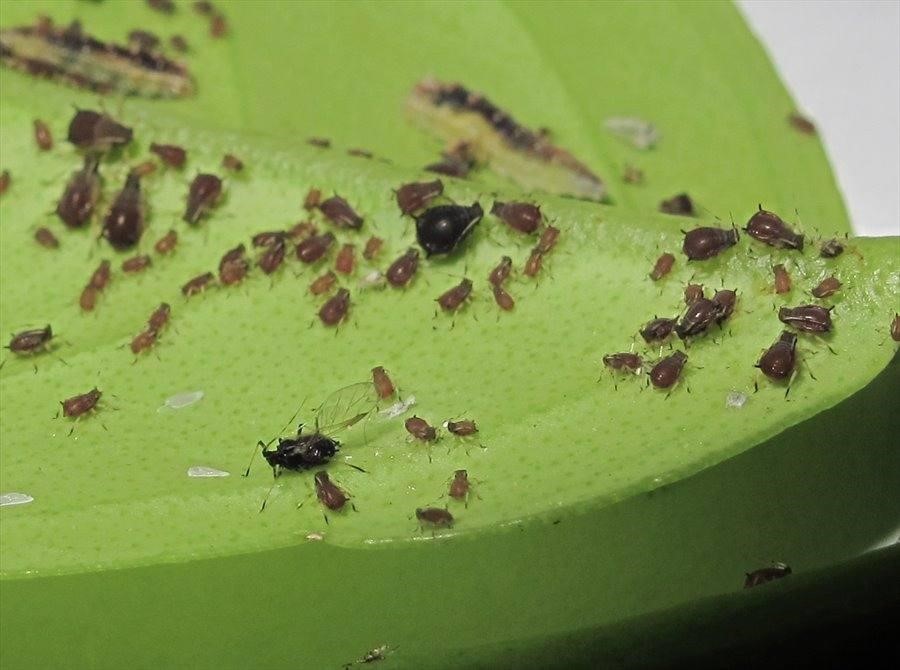
One of the notorious honeydew-sucking insects in most fruit-bearing plants and trees. They are small black insects that pierce the leaves to extract honeydew from the plant.
Heavy infestations of aphids can affect photosynthesis which is essential in flower and fruit production.
2. Mealybugs
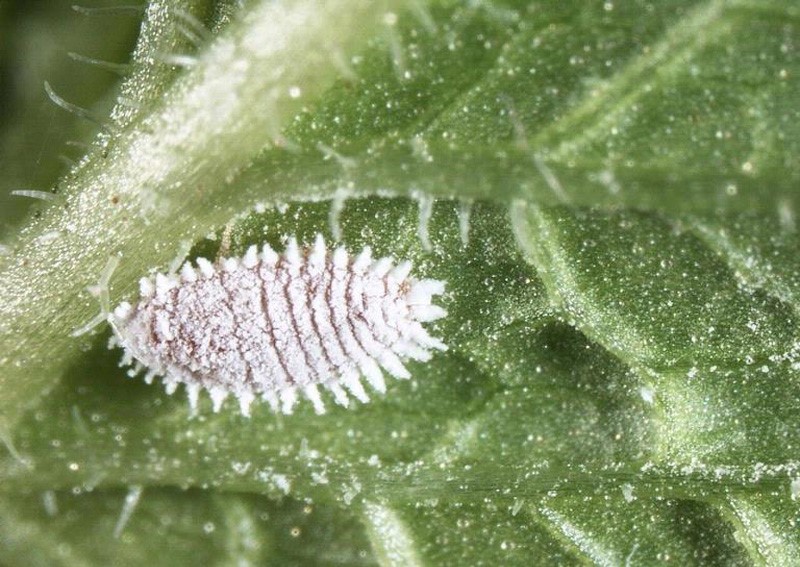
Oval-shaped insects are covered in wax. They are often found on the naval ends of citrus fruits. They also cling on the leaves until it starts to yellow and die.
3. Whiteflies
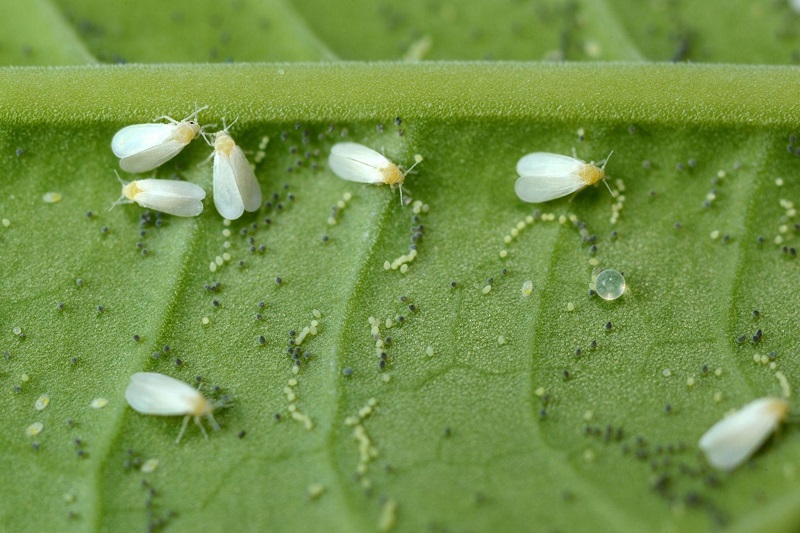
Small white moths that feed on leaves for the sticky sap or honeydew. They are often found on the underside of the leaves.
4. Citrus Leaf Miners
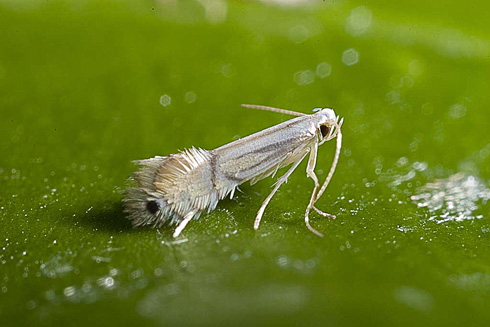
Larvae of a small moth that feeds on leaves in a distinctive pattern. The small larvae get deep on the leaves and create tunnels or mines that cause maze-like patterns.
5. Citrus Red Mites
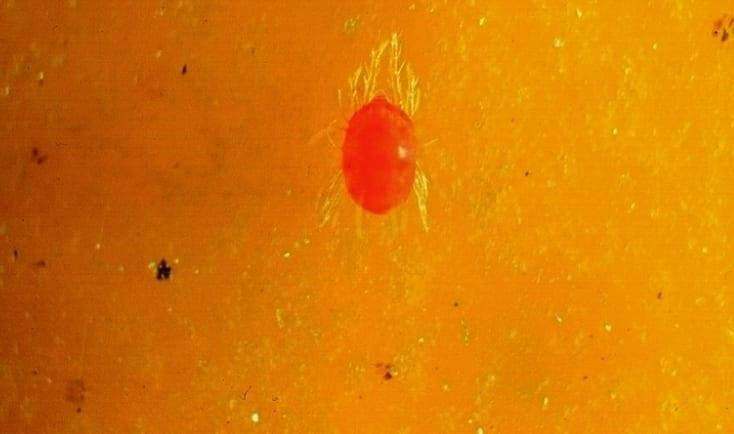
Spider mites with a size of 0.5mm and are almost circular. They feed on leaves, stems, and fruits.
During warm seasons, they develop and reproduce faster and their population decreases as the colder season approaches.
6. California Red Scale And Yellow Scales
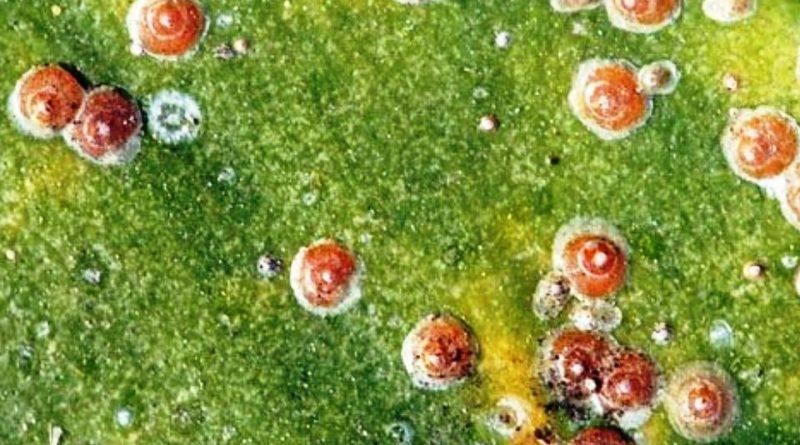
Armored insects that feed on wood, leaves, and fruits of citrus trees. The female scales have round coverings where they let the eggs hatch and turn into crawlers.
The male scales are only responsible for mating, while the crawlers are the ones feeding on the leaves, wood, and fruits.
7. Orange Dog Caterpillars
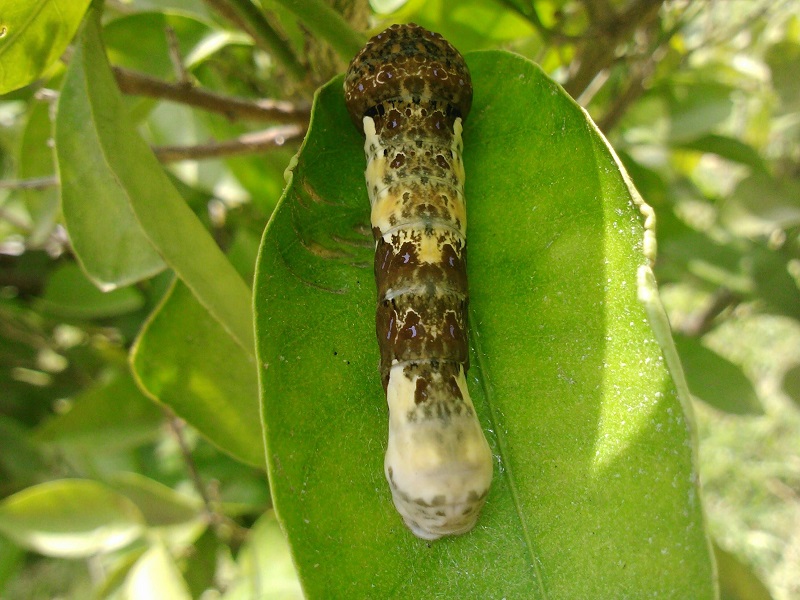
The larvae of giant swallowtail butterflies with dark brown bodies and white-creamy spots. These strange-looking caterpillars are only feeding on the leaves of citrus trees.
8. Citrus Cutworm
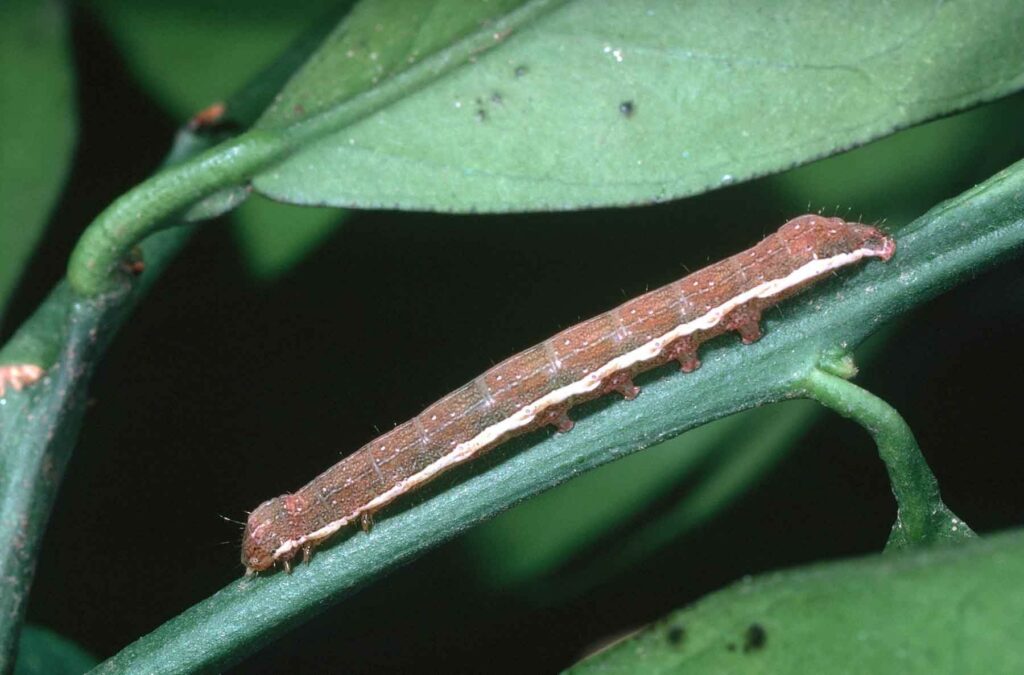
A type of caterpillar that feeds on the rind of the fruit leaving it with scars. They don’t affect the quality of the fruit but can cause scars on several fruits in a day.
They have the same feeding pattern as cutworms in tomatoes, where they eat and transfer from one fruit to another.
9. Light Brown Apple Moth
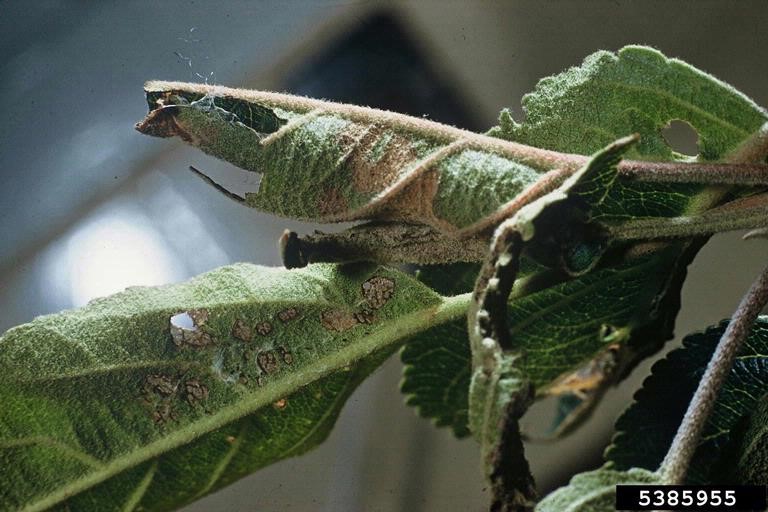
It feeds off the citrus leaves during their larval stage. They are often found where the larvae and fruit touch. The larvae of this insect create a web to protect itself while it feeds on the leaves of citrus trees.
10 Best Insecticides For Citrus Trees – Reviews & Top Picks In 2023
Now that you’ve seen the common pests in citrus, chances are you found the culprit that feeds on your citrus trees.
Let’s now find the solution for your pest problem with the best insecticides for citrus trees below:
1. Organic Neem Bliss 100% Pure Cold Pressed Neem Seed Oil
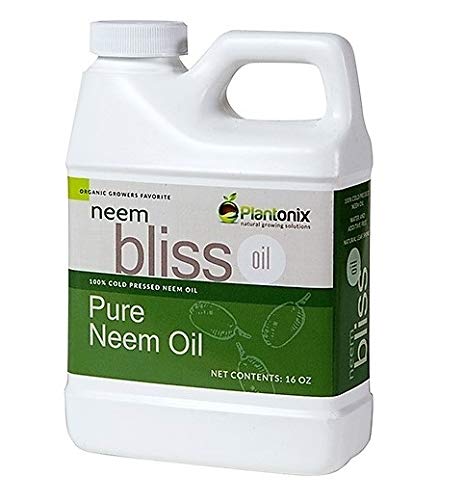
Organic Neem Blis Cold Pressed Neem Seed Oil is an organic insecticide with an active ingredient of azadirachtin.
High levels of azadirachtin help control insects in citrus trees such as citrus whiteflies, citrus leafminers, and aphids. It is among the ancient control methods in controlling pests in fields and farms.
Neem oil is diluted in water to serve as a contact insecticide. You must apply it directly to the insects to control them.
If you’re unlucky to spray them with neem solution, a frequent application can help. It is safe to use both indoors and outdoors as long as you can stand the strong smell of neem oil.
Some gardeners can’t tolerate the smell of neem oil and prefer not to use it on their plants. It has a strong garlicky smell that also subsides as the days pass. It serves as a 3-in-1 solution as neem oil can help control both insects, some species of mites, and fungal diseases in plants.
Organic Neem Bliss is safe to use around kids and pets as long as you allow the plants to dry. It’s OMRI-listed and has become the holy grail of most organic gardeners. Though it’s an organic insecticide, avoid applying it to your skin and eyes.
Pros
- Organic insecticide
- Treats citrus aphids, whiteflies, and leafminers
- Safe for the environment
- Kid and pet-friendly when dry
- Can be used for both indoor and outdoor plants
Cons
- Doesn’t kill certain species of mites in citrus trees
- Strong garlicky smell
2. Bonide All Seasons Horticultural and Dormant Spray Oil
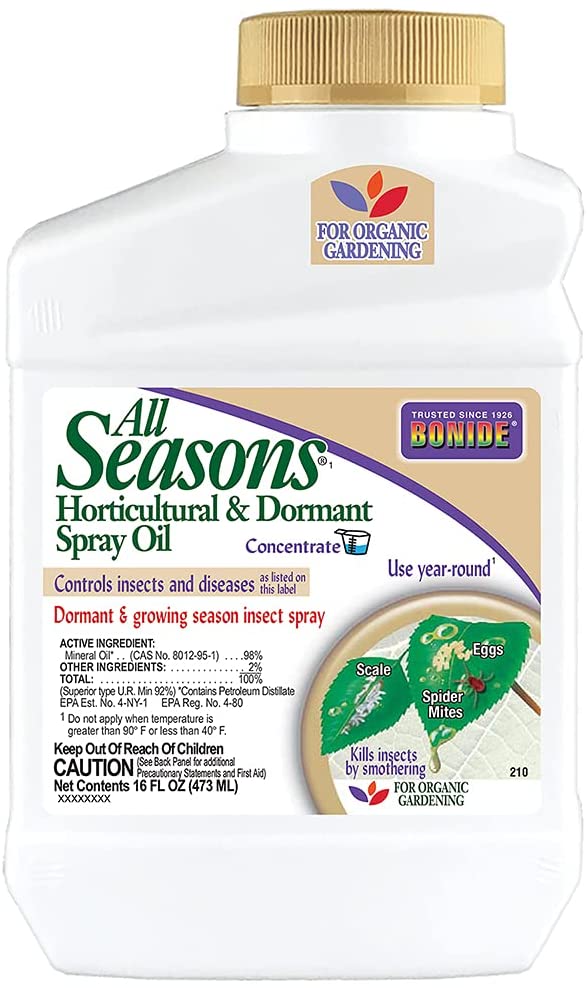
Bonide All Seasons Horticultural Oil is one of the popular brands of horticultural oils in the market. It has an active ingredient of mineral oil that helps smother insects and mites and control diseases. Gardeners love using this insecticide for its good performance in controlling the notorious pests in citrus trees such as scales and red mites.
One of the best features of this horticultural oil is it can be used from the growing season up to the dormancy period of plants. It helps kill the overwintering eggs of pests in the soil and on your plants.
It is highly recommended for the following:
- Fruits trees
- Shade trees
- Ornamentals
- Pears
- Cherries
- Shrubs
- Peaches
- Asparagus
- Corn peppers
- Roses
Another benefit of horticultural oil is it serves as a preventive insect control by sealing the fruits and leaves of plants. Some gardeners also find it amusing that the oil makes the leaves shiny and look more luscious.
It helps control the following pests in citrus trees:
- Red spiders
- Armored and soft scales
- Leaf rollers
- Blister mites
- Whiteflies
- Aphids
- Mealybugs
- Red mites
- Two-spotted red mites
Aside from being an effective insecticide and miticide, this horticultural oil is also effective in controlling the following plant diseases:
- Powdery mildew
- Rust
- Greasy spot
- Botrytis leaf spot
Since horticultural oils are derived from organic oil, it is safe to use around people and pets.
It also doesn’t leave a toxic residual effect which makes it an environment-friendly choice. It also doesn’t have a strong odor that makes it suitable for your indoor plants.
Pros
- Organic insecticide for citrus trees
- No harmful residual effect
- Best for controlling scales, aphids, and spider mites in citrus trees
- Safe to use around pets and kids
- Environment-friendly
- Can be used during dormancy and growing season
Cons
- A bit pricey for some gardeners
3. Monterey Garden Insect Spray with Spinosad Concentrate
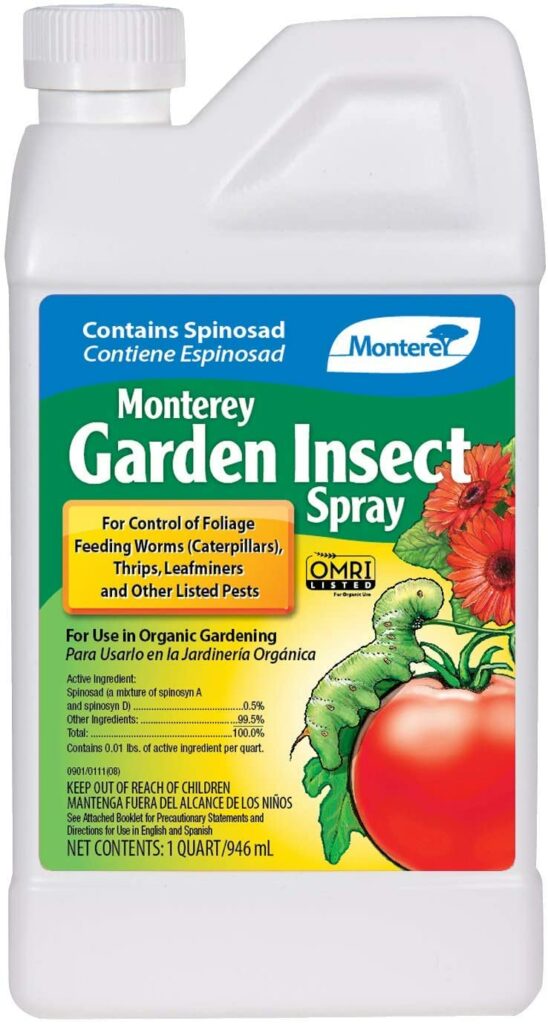
Monterey Garden Insect Spray with Spinosad Concentrate is another organic holy grail of gardeners for citrus leafminers. Its active ingredient is spinosad which is a natural bacteria derived from fermentation.
Aside from citrus leafminers, it helps control the following pests:
- Caterpillars
- Codling moth
- Rent caterpillars
- Gypsy moth
- Thrips
- Borers
- Fire ants
- Loopers
Spinosad can penetrate the leaves to control stuck eggs and larvae beneath the surface of citrus leaves. Aside from citrus trees, you may also use it to protect the following plants:
- Apples
- Asparagus
- Basil
- Lemongrass
- Broccoli
- Grapes
- Eggplant
- Celery
- Turnips
- Strawberries
- Peas
The only factor that gardeners notice with this spinosad insecticide is some pests may tend to come back to their plants after several months.
However, you can reapply it on the affected plant to keep the pesky bugs away.
It doesn’t have the strong smell that usually comes with organic insecticides. Due to its organic nature, you can use it until the day of harvest. It is also OMRI-listed and safe to use around kids and pets.
Pros
- Organic insecticide drive from fermentation
- OMRI-listed
- Best for controlling citrus leafminers and caterpillars
- Can be applied to fruits until the day of harvest
Cons
- May require re-application as pests may tend to come back after several months
4. Espoma Organic Earth-tone Insecticidal Soap
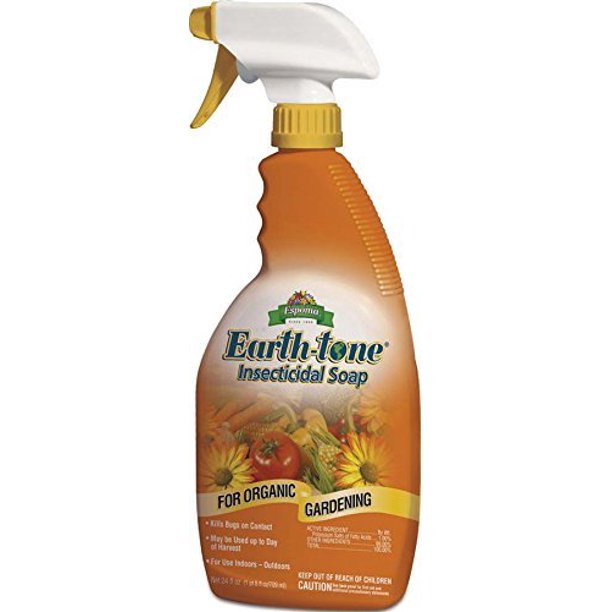
Espoma Organic Earth-tone Insecticidal Soap is the usual go-to solution of organic gardeners when homemade insecticides can no longer control the pest infestation in their gardens. The active ingredient of this insecticide is potassium salts derived from plant oils.
This insecticide is suitable for vegan gardeners as it is not derived from animal fatty acids usually found in commercial insecticidal soaps.
In citrus trees, it is an effective solution for aphids, mealybugs, mites, and whiteflies.
It is also effective in controlling the following pests:
- Adelgids
- Aphids
- Lace bugs
- Mealybugs
- Mites
- Grasshoppers
- Leafhoppers
- Scales
- Sawfly larvae
- Psyllids
- Tent caterpillars
- Thrips
- Spider mites
- Earwigs
- Whiteflies
Like neem oil, insecticidal soap is also a contact insecticide. The diluted solution must be directly applied to the insects for the insecticide to take effect.
Aside from citrus trees, you can also use this insecticide for the following plants:
- Fruit trees
- Nut trees
- Corn
- Soybeans
- Melons
- Tomatoes
- Vegetables
- Figs
- Houseplants
- Ornamentals
- Shade trees
This insecticidal soap has no strong odor and doesn’t cause stains indoors. Since it is an organic insecticidal soap, it’s safe to use around kids and pets as long as you allow them in the affected area when the insecticide has dried up.
Plus, it can also help you deal with your ant problems inside your home.
Pros
- Organic insecticide for citrus trees
- Derived from plant oils
- Can be used indoors and outdoors
- No strong odors
- No stains
- Good for vegan gardening
- Safe to use around kids and pets when dry
- Environment-friendly
Cons
- May require several applications to control heavy pest infestations
5. Southern Ag Malathion-Oil Citrus & Ornamental Citrus Concentrate
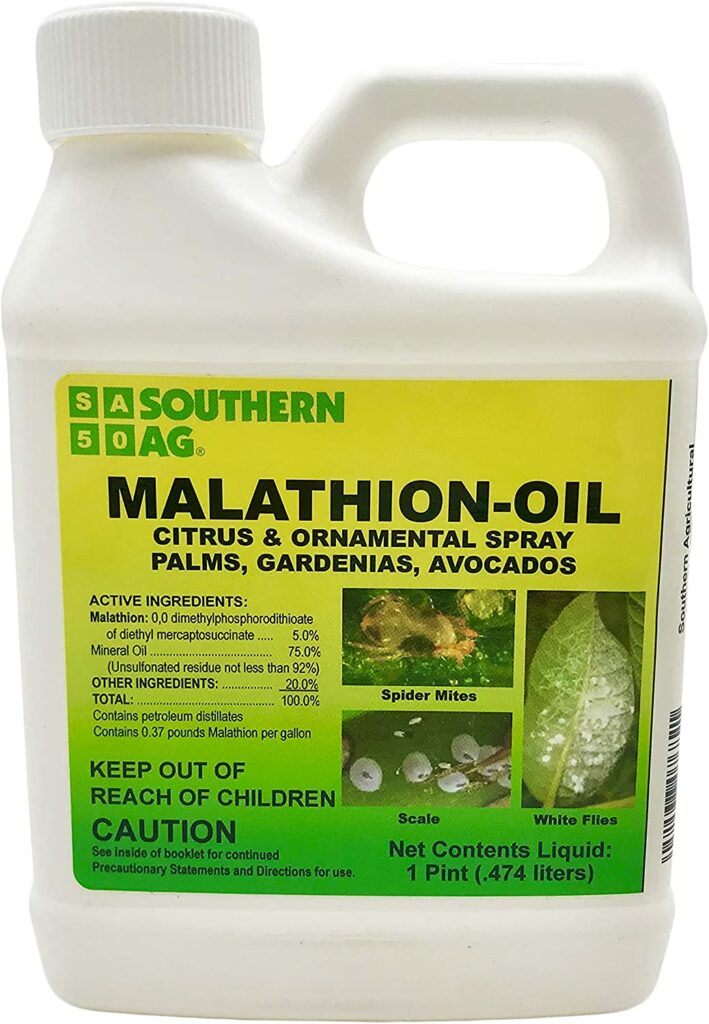
Southern Ag Malathion-Oil Citrus & Ornamental Citrus Concentrate is another effective insecticide for controlling scales.
This is a synthetic insecticide made of 5% malathion and 75% mineral oil. It also contains paraffinic oil. It can serve as a cover spray or a summer oil spray for your citrus trees.,
Since it’s a synthetic insecticide, you might be curious if it is safe to use on edible citrus fruits.
Malathion is low in toxicity and degrades fast, and can only last on the surface of the fruits for a maximum of 7 days or one week. It is also safe to apply on fruits since it doesn’t penetrate the thick skin of citrus fruits.
Most gardeners find this insecticide as an effective solution for soft scales. It also helps control the following pests:
- Whiteflies
- Spider mites
- Citrus mealybugs
- Aphids
- Other common pests in citrus trees and ornamental plants
Though it gets the job done in controlling soft scales, it might not be as effective on armored scales. Some gardeners consider the strengths of this insecticide as inadequate in penetrating the waxy coverings of armored scales.
The manufacturer and other gardeners warn about its high toxicity on beneficial insects like bees.
That’s why it should not be used on citrus trees during its blooming season to prevent killing the pollinating insects and predators of the pests.
Since this is a synthetic insecticide, you must use it with precaution around kids and pets. It may also pose some risks to aquatic animals and should not leak to nearby waterways and any bodies of water.
Pros
- Serves as a cover spray and summer oil spray
- Degrades quickly and does not penetrate the thick skin of citrus fruits
- The best control for scales
Cons
- Synthetic insecticide
- Highly toxic to bees
6. Safer Brand Insect Killing Soap Concentrate
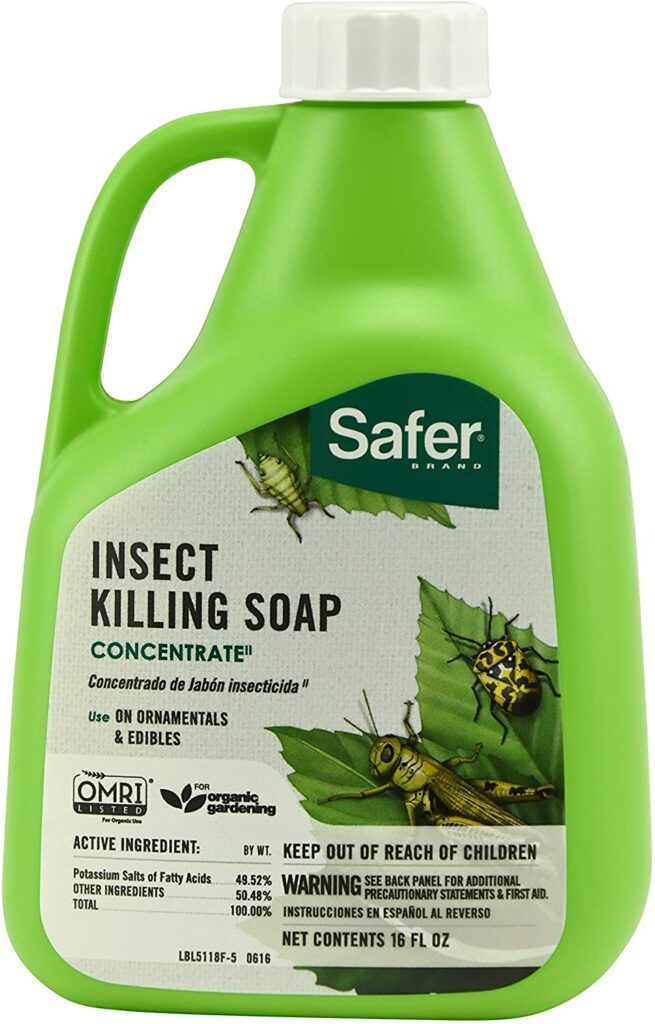
Another brand of insecticidal soap popular with most gardeners is the Safer Brand Insect Killing Soap Concentrate.
It contains potassium salts from fatty acids that break the outer layer of the insect’s body. Once their skin breaks, water will leak out of their bodies and cause dehydration until they die.
This insecticide can be used on almost any plant, including ornamentals, edibles, and fruit trees. It helps control the common pests in citrus trees like aphids, soft scales, spider mites.
It also helps control other pests, including:
- Earwigs
- Grasshoppers
- Harlequin bugs
- Leafhoppers
- Mealybugs
- Psyllids
- Sawfly larvae
- Whiteflies
Since it is a good insecticide for organic gardening, you can use it on your citrus trees until the day of harvest. It is gentler on beneficial insects compared to synthetic insecticides. However, it’s best not to apply it during the blooming season of citrus trees.
It is an organic contact insecticide, so it’s safe to use around kids and pets and environment-friendly. According to the manufacturer, it is also formulated to be gentler than the Ready-To-Use formula to make it more gentle on sensitive plant species.
Pros
- Organic insecticide
- A gentle formula for sensitive plant species
- Safe for kids and pets
- Milder odor compared to synthetic insecticides
- Safe to use around kids and pets
- Environment-friendly
Cons
- May require re-application for heavy pest infestations
7. Ortho MAX Malathion Concentrate Insect Spray
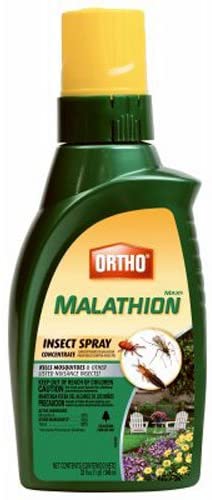
If you are looking for the strongest insecticide to fight heavy and persistent pest infestation in your citrus trees, Ortho MAX Malathion Concentrate Insect Spray can do the trick.
Many gardeners praise the fast results of this insecticide that you can observe with only a few applications.
It contains 50% malathion and 50% other ingredients that were not disclosed by the manufacturer. Nevertheless, it is widely used as mosquito control in some areas where malathion use is allowed.
It can even help control armored insects like Japanese beetles:
- Aphids
- Bagworms
- Boxelder bugs
- Black scales
- Purple scales
- Yellow scales
- Florida red scales
- Cabbage loopers
- Codling moth
- Cucumber beetles
- Fourlined leaf bugs
- Grape leafhopper
- Japanese beetle (adults)
- Lace Bugs
- Mealybugs
- Mosquitoes
- Pear psyllid
- Red-banded leafrollers
- Strawberry leafrollers
- Spittlebug
- Red spider mite
- Rose leafhopper
- Spruce mites
- Tent Caterpillars
- Tarnished plant bug
- Thrips
- Whiteflies
- Hemlock woolly adelgid
Due to its strong formulation, it can only be used on outdoor plants and trees as it gives off a strong odor. You may also want to use protective equipment like gloves, a facemask, safety glasses, and a long-sleeved shirt.
This insecticide has a stronger formulation of malathion and should be handled with the utmost care, especially around kids and pets.
However, the toxic effect also goes away as soon as the insecticide gets dry. It’s best to store it in a place where there are no chances of leakage or be opened by curious children or pets.
Pros
- Has a stronger formulation of malathion that provides immediate results
- Can control armored insects
- A small amount can go a long way
- Best insecticide for heavy pest infestations
Cons
- Can only be used outdoors
- Highly toxic
- Requires you to wear safety equipment upon application
- Not safe to use around kids and pets
8. Monterey Horticultural Oil Concentrate
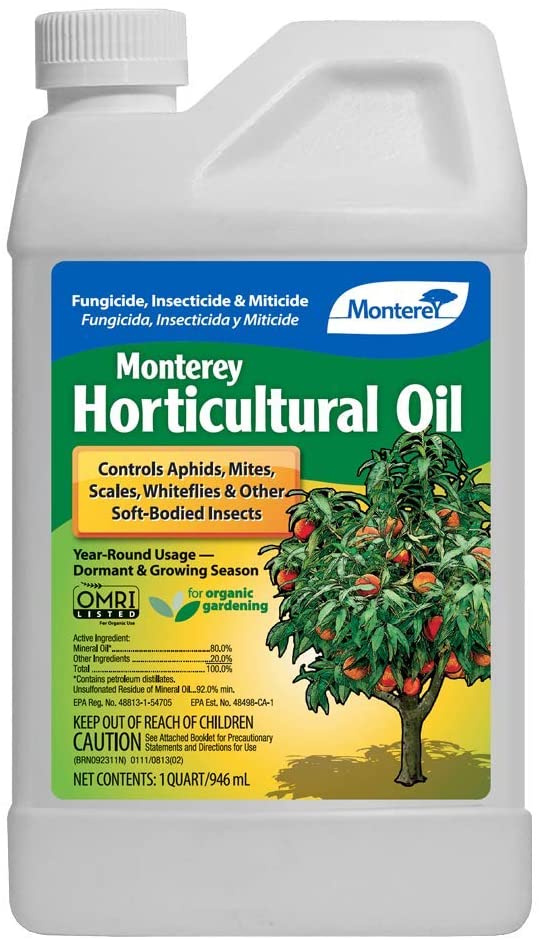
Another brand for a good horticultural oil is from Monterey. It serves as fungicide, miticide, and insecticide for your citrus trees.
It is OMRI-listed and among the top choices for organic gardening. It contains 80% mineral and other ingredients that are kept as a secret sauce of the manufacturer.
This insecticide contains petroleum distillates which help control insects by blocking their air holes. It usually has a kerosene-like odor and may cause skin irritation for prolonged exposure.
This insecticide only contains a small percentage of petroleum distillates just to enhance their formulation.
This horticultural oil is best for controlling the following insects:
- Aphids
- Leafminers
- Leafhoppers
- Thrips
- Spider mites
- Scales
- Whiteflies
- Mealybugs
If you have a caterpillar infestation, this may not be the best solution to go for.
Though it can help control both adult soft-bodied insects and their eggs, it has poor control over caterpillars and moth larvae. It can serve as a foliage protector for most edible and ornamental plants, including:
- Corn
- Potatoes
- Peaches
- Figs
- Apples
- Almonds
- Pecans
- Pineapple
- Avocados
- Citrus trees
- Blackberries
Aside from being an organic insecticide, it can be used on plants from their dormancy to the growing season.
Some gardeners use this insecticide along with liquid copper to protect their plants and trees during their dormancy period.
Since it’s organic, you can freely use it both indoors and outdoors. It also doesn’t have the strong odor that some gardeners hate about other types of insecticides. It is also safe to use around kids and pets.
Pros
- Organic fertilizer for citrus trees
- Can be used indoors and outdoors
- No strong odor
- Serves as a fungicide, miticide, and insecticide
- Safe to use around kids and pets
- Environment-friendly
Cons
- Poor control on caterpillars and moth larvae
9. Verdana Organic Cold Pressed Neem Oil
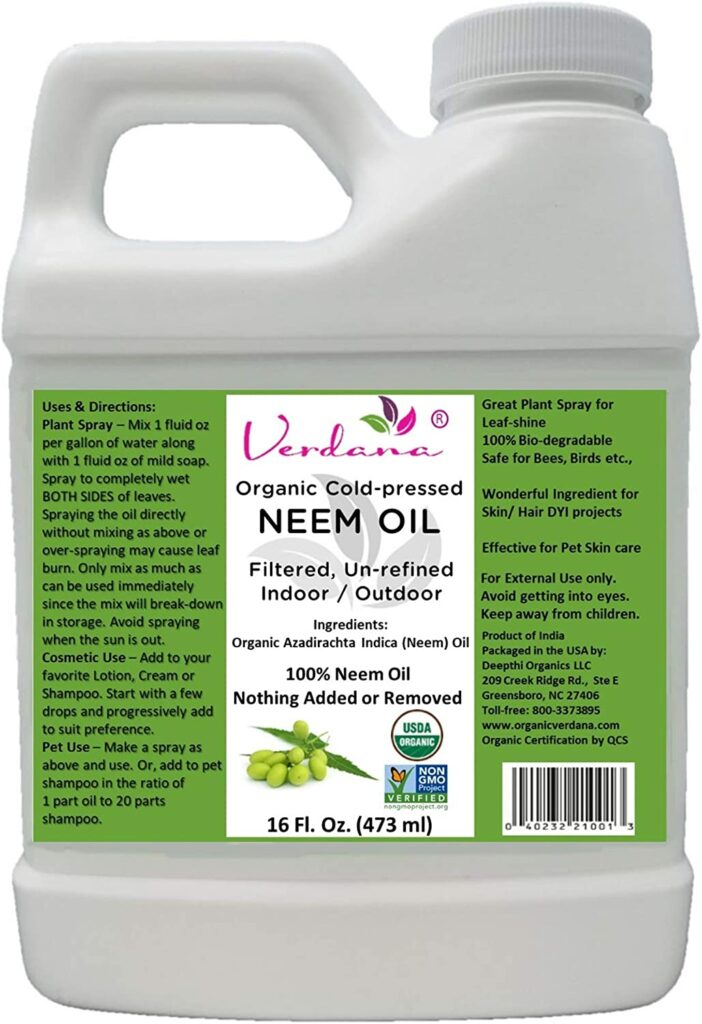
Verdana USDA Organic Cold Pressed Neem Oil is the best insecticide for citrus trees if you are looking for the purest form of neem oil on the market.
It is an unrefined and unfiltered neem oil that can be used not only on citrus trees but also on humans and pets. It is USDA-approved and has a non-GMO formulation.
You can use this neem oil brand as a preventive leaf shine on your plants to keep the pests at bay. Many gardeners find it less smelly than other pre-mixed neem oil brands. The smell will fade off eventually the next day.
Since it is organic, you can use it on your indoor and outdoor citrus trees. It also leaves no harmful residual effect on your plants. It can help you control the following pests:
- Spider mites
- Cucumber beetles
- Citrus aphids
- Whiteflies
- Bagworms
- Black gnats
For pet care, you can mix this neem oil with olive oil to help treat the itchy skin of your dogs. It is highly effective in controlling ticks and fleas.
However, you must mix it with another oil or solution so it won’t be too strong on your pet’s skin.
For skin and hair care, you can mix this unfiltered neem oil on your shampoo or lotion to enhance its health benefits. However, the manufacturer warns users that they should do some patch skin tests before using their DIY skin and hair mixtures.
Many gardeners are complaining that their plants were burned by using this product. However, they mostly fail to realize that it is a type of oil.
Applying it during the hottest time of the day can fry the leaves of their plants.
Ideally, you should apply this at night when the beneficial insects are back in their hives and the temperature has dropped.
Most organic gardeners are now transitioning to this product since it is more affordable, less smelly, and not too harmful to bees and frogs.
Professional gardeners recommend using this product first before going for the stronger chemical insecticides like malathion and see if it solves your pest problems.
It is safe to use around kids and pets. However, you should prepare yourself for the strong smell for a day or two after application.
Pros
- Affordable
- Unrefined neem oil
- Gentler on bees and frogs
- Mild smell that pre-mixed neem oil brands
- Controls neem-oil-resistant mites
- Can be used to treat ticks and fleas in pets
- A good ingredient for DIY skin and hair care treatments
Cons
- Can burn plants if not diluted properly and applied on citrus trees at the wrong time of the day
10. Garden Safe’s Insecticidal Soap Insect Killer, Ready-to-Use
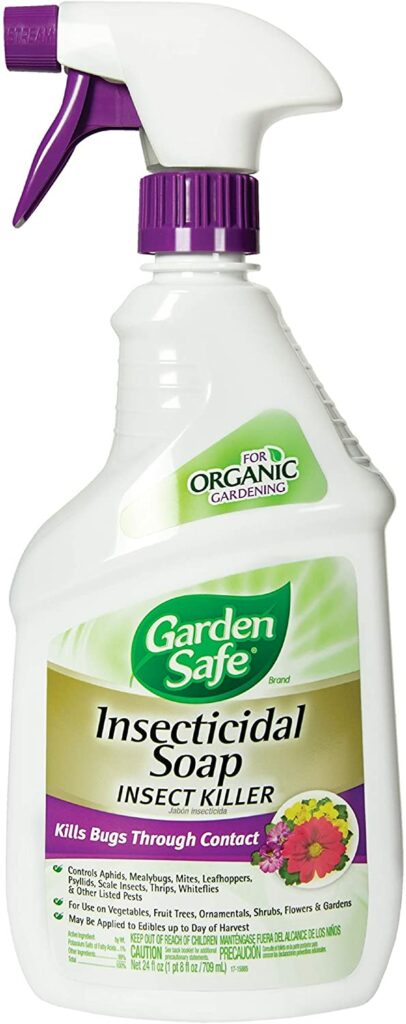
Our list will never be complete without the Garden Safe’s Insecticidal Soap Insect Killer, Ready-to-Use Spray.
This insecticidal soap has an easy-to-use formulation which is best for gardeners who don’t have time to mix and dilute insecticide solutions. It contains potassium salts derived from plant derived-fatty acids.
It is a contact insecticide that damages the cell membranes of soft-bodied insects and lets them dehydrate and eventually die.
You can use it in treating indoor, outdoor, and greenhouse plants and trees. It helps control common pests in citrus trees in their adult, larval, and nymph stage.
This insecticidal soap can help you get rid of the following pests:
- Aphids
- Mealybugs
- Mites
- Leafhoppers
- Fungus gnats
- Psyllids
- Scales
- Thrips
- Whiteflies
It is safe to use edible plants until the day of harvest since it doesn’t contain any toxic chemicals.
Despite being a gardening staple, this insecticide remains affordable. It is also OMRI-listed and safe to use around kids and pets.
Pros
- Organic insecticide for citrus trees
- Ready-to-use formula
- No mess and no mixing needed
- Kids and pet-friendly
- Environment-friendly
- Affordable
Cons
- It may not be effective on armored insects and heavy pest infestations
Final Thoughts
Fruit trees like citrus trees are the common target of pests due to their abundance of honeydew and luscious leaves.
For a developing pest infestation, the best preventive insecticides from our list are Verdana Cold-Pressed Neem Oil and Monterey Horticultural Oil Concentrate.
On the other hand, Ortho Max Malathion is by far the go-to solution of gardeners when most insecticides can no longer solve their heavy pest problems in citrus trees.
However, since it’s highly toxic, we suggest that you try the organic route first before using a synthetic insecticide.
Most of the time, proper applications of neem and horticultural oil can already treat your citrus plants. So, there’s no need to turn to synthetic pesticides that can be harmful to the environment if not used properly.
We hope that this post helped you find the best insecticides for citrus trees. As you may have noticed, we always choose organic pesticides to promote an environment-friendly approach to gardening.
We only recommend using synthetic insecticides if the infestation goes out of hand.
If your friends are looking for pest control for citrus trees, please don’t forget to share this post with them.
Also, let us know in the comment section below which insecticide helped you win over the bugs feeding on your citrus trees.
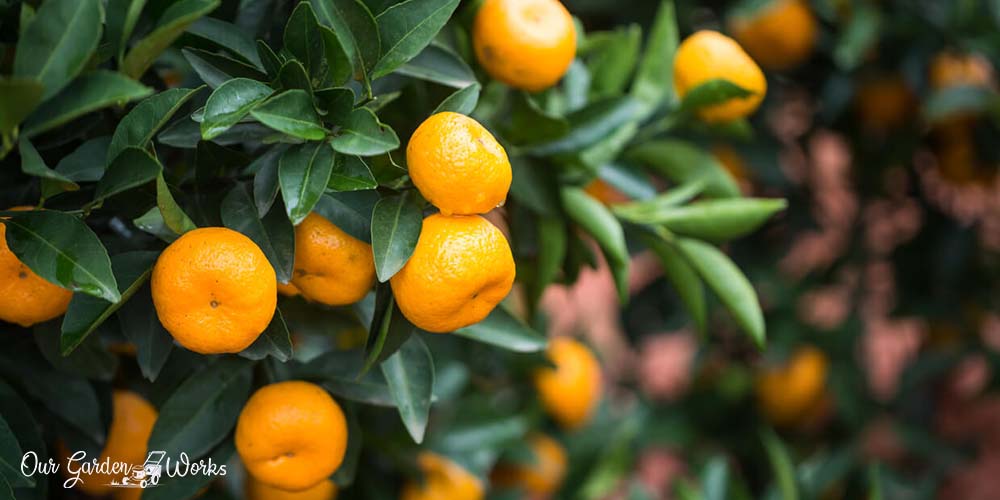
Thanks for sharing